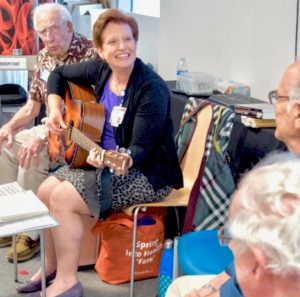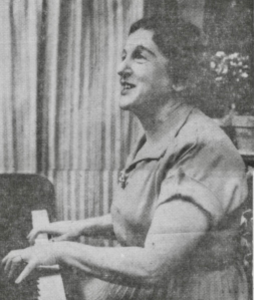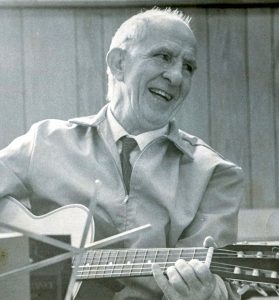This AMTA-Pro podcast captures an interesting conversation with our music therapy colleagues Kimberly Sena Moore and Deanna Hanson-Abromeit as they talk through the various steps involved when creating a viable music therapy intervention strategy. They emphasize how collaboration and forward thinking are necessary when systematically looking at the theoretical framework of a music intervention and the therapeutic function of the music when studying the feasibility and fidelity of the proposed music intervention. The clinical trials provide critical information about the efficacy of the intervention with clinical populations and provide input about replication and generalization. The text section of this AMTA-Pro podcast includes a wealth of resources as well as information about the Musical Contour Regulation Facilitation (MCRF), a music intervention designed to promote emotion regulation in at-risk preschoolers. Kimberly and Deanna use their work in creating the MCRF as an example of the intervention development process.
[display_podcast]
Read the rest of this entry »

 The speakers in this AMTA-Pro podcast – Growing Your Private Music Therapy Practice – are speaking from first-hand experience when talking about their ups and downs when establishing their own successful and expanding music therapy practices. Our MT-BC colleagues Mary Altom and Rachelle Morgan share a wealth of effective strategies for growing a private music therapy practice without fear. The discussion focuses on different approaches for selling music therapy services, and includes practical information about word-of-mouth marketing, content marketing, advertising, and event-based marketing. Rachelle and Mary spend some time in the podcast talking about a useful 4-part consultation model, and they provide some helpful resources for anyone wanting to start or grow a music therapy practice.
The speakers in this AMTA-Pro podcast – Growing Your Private Music Therapy Practice – are speaking from first-hand experience when talking about their ups and downs when establishing their own successful and expanding music therapy practices. Our MT-BC colleagues Mary Altom and Rachelle Morgan share a wealth of effective strategies for growing a private music therapy practice without fear. The discussion focuses on different approaches for selling music therapy services, and includes practical information about word-of-mouth marketing, content marketing, advertising, and event-based marketing. Rachelle and Mary spend some time in the podcast talking about a useful 4-part consultation model, and they provide some helpful resources for anyone wanting to start or grow a music therapy practice.
[display_podcast]
Read the rest of this entry »
 Board Certified Music Therapist Joy Schneck worked in pediatric oncology and as a Clinical Training Director until 1985 when she took the position of Director of Professional Programs for NAMT (now called AMTA). She began working as Executive Director of the Certification Board for Music Therapists (CBMT) in 1993 and has provided leadership in music therapy credentialing since that time. In a recent blog post for the Institute for Credentialing Excellence online journal, Joy said that CBMT’s mission and purpose were important to her personally because, by “working clinically as a music therapist and knowing the struggles therapists faced, I recognized the need for an objective measure of competence to solidify our professional goals in the health care arena.” Her dedication to that critical aspect of board certification shaped her work for NAMT starting in 1985 and then for CBMT since 1993. Joy talks informally in this AMTA-Pro podcast about her work as a clinician and her thoughts about the early years of developing professional certification and provides numerous helpful resources in the text section of this podcast.
Board Certified Music Therapist Joy Schneck worked in pediatric oncology and as a Clinical Training Director until 1985 when she took the position of Director of Professional Programs for NAMT (now called AMTA). She began working as Executive Director of the Certification Board for Music Therapists (CBMT) in 1993 and has provided leadership in music therapy credentialing since that time. In a recent blog post for the Institute for Credentialing Excellence online journal, Joy said that CBMT’s mission and purpose were important to her personally because, by “working clinically as a music therapist and knowing the struggles therapists faced, I recognized the need for an objective measure of competence to solidify our professional goals in the health care arena.” Her dedication to that critical aspect of board certification shaped her work for NAMT starting in 1985 and then for CBMT since 1993. Joy talks informally in this AMTA-Pro podcast about her work as a clinician and her thoughts about the early years of developing professional certification and provides numerous helpful resources in the text section of this podcast.
[display_podcast]
Read the rest of this entry »
 As music therapists, we often find ourselves networking with most staff members and with numerous groups and individuals within our facilities. This unique work culture sometimes results in challenging or inappropriate comments or advances from others. In this AMTA-Pro podcast, music therapist Kory Antonacci discusses different types of sexual harassment and provides specific guidelines and resources for music therapy professionals, interns, and students to utilize when responding to, reporting, and taking steps to prevent sexual harassment. We can use these tools to create a safe workplace culture for all involved.
As music therapists, we often find ourselves networking with most staff members and with numerous groups and individuals within our facilities. This unique work culture sometimes results in challenging or inappropriate comments or advances from others. In this AMTA-Pro podcast, music therapist Kory Antonacci discusses different types of sexual harassment and provides specific guidelines and resources for music therapy professionals, interns, and students to utilize when responding to, reporting, and taking steps to prevent sexual harassment. We can use these tools to create a safe workplace culture for all involved.
[display_podcast]
Read the rest of this entry »

 The benefits for all participants are evident when older adult community members and college students gather weekly under the leadership of a music therapist to learn and enjoy music popular across all generations. In this AMTA-Pro podcast, our music therapy colleagues Natalie Wlodarczyk and Matt Valois provide pragmatic guidelines for intergenerational rock band experiences designed to facilitate maintenance of cognitive, psychosocial, and physical skills for older adults while introducing both generations to new music and new experiences. Natalie and Matt discuss field-tested methods for selecting, arranging, and teaching pop music from diverse artists over the decades, and they share ideas for customizing intergenerational music experiences to respond to individual and group needs while promoting wellness, group cohesion, and bonding between the two generations.
The benefits for all participants are evident when older adult community members and college students gather weekly under the leadership of a music therapist to learn and enjoy music popular across all generations. In this AMTA-Pro podcast, our music therapy colleagues Natalie Wlodarczyk and Matt Valois provide pragmatic guidelines for intergenerational rock band experiences designed to facilitate maintenance of cognitive, psychosocial, and physical skills for older adults while introducing both generations to new music and new experiences. Natalie and Matt discuss field-tested methods for selecting, arranging, and teaching pop music from diverse artists over the decades, and they share ideas for customizing intergenerational music experiences to respond to individual and group needs while promoting wellness, group cohesion, and bonding between the two generations.
[display_podcast]
Read the rest of this entry »
 It seems the ethics of publishing an article would be rather straightforward, but this AMTA-Pro podcast reveals the complexity of publication. The podcast features an informative and thought-provoking conversation with Sheri Robb, Helen Shoemark, and Barbara Else talking about some key questions: What constitutes authorship? What is token authorship? Is it plagiarism if…? What is self-plagiarism? What should students and mentors consider with regard to authorship? What is meant by fragmented publication? What about intellectual property and copyright? The text section of the podcast includes helpful resources.
It seems the ethics of publishing an article would be rather straightforward, but this AMTA-Pro podcast reveals the complexity of publication. The podcast features an informative and thought-provoking conversation with Sheri Robb, Helen Shoemark, and Barbara Else talking about some key questions: What constitutes authorship? What is token authorship? Is it plagiarism if…? What is self-plagiarism? What should students and mentors consider with regard to authorship? What is meant by fragmented publication? What about intellectual property and copyright? The text section of the podcast includes helpful resources.
[display_podcast]
Read the rest of this entry »
 Submitting a research manuscript to a peer-reviewed journal can be a daunting, mysterious endeavor. The speaker in this AMTA-Pro podcast, Dr. Shannon de l’Etoile, provides a step-by-step explanation of the peer review process to help increase the likelihood of favorable reviews Prospective authors will learn how to select an appropriate journal for submission and how to apply general author guidelines relevant to most peer-reviewed journals. Podcast listeners will also learn about the mechanics of scientific writing and gain insight into the expectations of reviewers in peer-reviewed journals for manuscript content; including scientific rigor, appropriate analysis and presentation of data, and meaningful interpretation of findings.
Submitting a research manuscript to a peer-reviewed journal can be a daunting, mysterious endeavor. The speaker in this AMTA-Pro podcast, Dr. Shannon de l’Etoile, provides a step-by-step explanation of the peer review process to help increase the likelihood of favorable reviews Prospective authors will learn how to select an appropriate journal for submission and how to apply general author guidelines relevant to most peer-reviewed journals. Podcast listeners will also learn about the mechanics of scientific writing and gain insight into the expectations of reviewers in peer-reviewed journals for manuscript content; including scientific rigor, appropriate analysis and presentation of data, and meaningful interpretation of findings.
[display_podcast]
Read the rest of this entry »
 Lyric analysis is used in psychosocial music therapy treatment to assist music therapy clients in identifying personal issues, exploring emotions, and relating to the experiences of others. In this AMTA-Pro podcast, our colleague Karen Miller presents a Quick Reference Guide to Lyric Analysis for music therapy clinicians. The clinical tool, built on a solid foundation of theory, research, and practice, is an easily accessible system for clinical decision-making. It is also intended to assist therapists and their clients in moving from the identification and expression of therapeutic material to positive action, thereby facilitating practical steps toward problem solving. The Quick Reference Guide is included in the text section of this AMTA-Pro podcast.
Lyric analysis is used in psychosocial music therapy treatment to assist music therapy clients in identifying personal issues, exploring emotions, and relating to the experiences of others. In this AMTA-Pro podcast, our colleague Karen Miller presents a Quick Reference Guide to Lyric Analysis for music therapy clinicians. The clinical tool, built on a solid foundation of theory, research, and practice, is an easily accessible system for clinical decision-making. It is also intended to assist therapists and their clients in moving from the identification and expression of therapeutic material to positive action, thereby facilitating practical steps toward problem solving. The Quick Reference Guide is included in the text section of this AMTA-Pro podcast.
[display_podcast]
Read the rest of this entry »

 Collaboration can be a key element for music therapists whether in the clinic, in research, or in education and training. In this AMTA-Pro podcast, our music therapy colleagues Dr. Laura Brown and Dr. Ellary Draper share their insights and experiences in several different aspects of their professional careers. Laura and Ellary give examples of ways collaboration and partnerships helped them in their graduate education, in their research projects, in their work as professors, and in two innovative clinical projects. Laura talks about partnering music therapy and speech-language pathology students in Camp Rock, her inclusive camp for children with ASD. Ellary describes her High School Pop Choirs, collaborative projects to help teachers successfully include students with disabilities in general music classrooms. The podcast speakers take time to discuss the benefits of collaborative partnerships as well as some of the challenges they have encountered over the years.
Collaboration can be a key element for music therapists whether in the clinic, in research, or in education and training. In this AMTA-Pro podcast, our music therapy colleagues Dr. Laura Brown and Dr. Ellary Draper share their insights and experiences in several different aspects of their professional careers. Laura and Ellary give examples of ways collaboration and partnerships helped them in their graduate education, in their research projects, in their work as professors, and in two innovative clinical projects. Laura talks about partnering music therapy and speech-language pathology students in Camp Rock, her inclusive camp for children with ASD. Ellary describes her High School Pop Choirs, collaborative projects to help teachers successfully include students with disabilities in general music classrooms. The podcast speakers take time to discuss the benefits of collaborative partnerships as well as some of the challenges they have encountered over the years.
[display_podcast]
Read the rest of this entry »
 Every life deserves world class care. Our music therapy colleague Dr. Becky Wellman is part of that mission at the Cleveland Clinic Lou Ruvo Center for Brain Health in Nevada where she has developed innovative services providing music therapy for individuals with dementia while at the same time allowing respite time for their family members. In this AMTA-Pro podcast, Becky talks about all aspects of designing and implementing the MT Respite Program, including assessments, session format, adaptations, safety issues, and more. She also talks about the challenges of building trust with the patients, the staff, and the family members. The results of the survey as well as observations by the therapist and caregiver comments indicate the wide-spread positive impact of the program on all involved.
Every life deserves world class care. Our music therapy colleague Dr. Becky Wellman is part of that mission at the Cleveland Clinic Lou Ruvo Center for Brain Health in Nevada where she has developed innovative services providing music therapy for individuals with dementia while at the same time allowing respite time for their family members. In this AMTA-Pro podcast, Becky talks about all aspects of designing and implementing the MT Respite Program, including assessments, session format, adaptations, safety issues, and more. She also talks about the challenges of building trust with the patients, the staff, and the family members. The results of the survey as well as observations by the therapist and caregiver comments indicate the wide-spread positive impact of the program on all involved.
[display_podcast]
Read the rest of this entry »
 Proposals for conference sessions or CMTE sessions at regional or national music therapy conferences go through a blind review process, so everyone starts out on an equal footing. But some proposals are more likely to be chosen than others for specific reasons. In this AMTA-Pro podcast, regional representatives on AMTA’s Continuing Education Committee share numerous practical tips for developing and submitting strong proposals. The podcast speakers discuss considerations when selecting a topic and when writing the title, abstract, learning objectives, and description of a conference session. All music therapists are encouraged to consider sharing their experiences and expertise in a conference session or CMTE session, and this AMTA-Pro podcast gives a strong start to the process whether you are a seasoned pro or just now getting up the courage to write a conference proposal.
Proposals for conference sessions or CMTE sessions at regional or national music therapy conferences go through a blind review process, so everyone starts out on an equal footing. But some proposals are more likely to be chosen than others for specific reasons. In this AMTA-Pro podcast, regional representatives on AMTA’s Continuing Education Committee share numerous practical tips for developing and submitting strong proposals. The podcast speakers discuss considerations when selecting a topic and when writing the title, abstract, learning objectives, and description of a conference session. All music therapists are encouraged to consider sharing their experiences and expertise in a conference session or CMTE session, and this AMTA-Pro podcast gives a strong start to the process whether you are a seasoned pro or just now getting up the courage to write a conference proposal.
[display_podcast]
Read the rest of this entry »


 Three professional musicians led prestigious careers for decades in Europe as opera singers, composers and teachers before moving the United Sates under life-threatening circumstances in WWII. One was a neighbor to Brahms, one worked with Mahler, and another was a singing porter on the London railway for 15 years. After escaping the Gestapo and coming the the United States, all three continued their productive music careers, and all three were among the first recipients of degrees in music therapy. They lived in different parts of the United States and pioneered music therapy practice with a variety of client populations. You won’t want to miss this riveting AMTA-Pro podcast where our MT-BC colleague Dr. Ted Ficken tells of their multi-faceted careers in composition, performance, teaching, writing, and music therapy, and about the impact of their work on the lives of many in the early 20th century.
Three professional musicians led prestigious careers for decades in Europe as opera singers, composers and teachers before moving the United Sates under life-threatening circumstances in WWII. One was a neighbor to Brahms, one worked with Mahler, and another was a singing porter on the London railway for 15 years. After escaping the Gestapo and coming the the United States, all three continued their productive music careers, and all three were among the first recipients of degrees in music therapy. They lived in different parts of the United States and pioneered music therapy practice with a variety of client populations. You won’t want to miss this riveting AMTA-Pro podcast where our MT-BC colleague Dr. Ted Ficken tells of their multi-faceted careers in composition, performance, teaching, writing, and music therapy, and about the impact of their work on the lives of many in the early 20th century.
[display_podcast] Read the rest of this entry »















